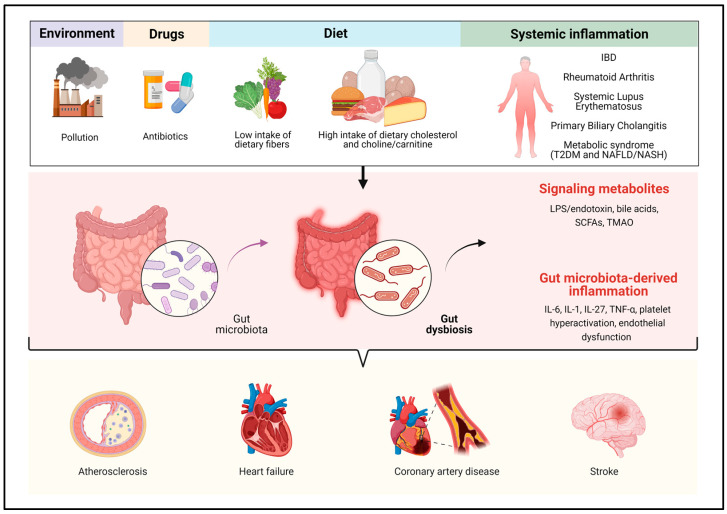Figure 1.
Gut dysbiosis is linked to endogenous and exogenous risk factors, the latter related to several systemic inflammatory and metabolic conditions. Modifications in the gut microbiome composition can lead to alterations of its metabolic pathways and facilitates the translocation of bacteria and their fragments and products in the bloodstream. This can enhance the pro-inflammatory milieu and produce metabolic perturbations that are a fertile ground for cardiovascular disorders. IBD: inflammatory bowel disease; T2DM: type 2 diabetes mellitus; NAFLD: non-alcoholic fatty liver disease; NASH: non-alcoholic steatohepatitis; LPS: lipopolysaccharide; SCFAs: short-chain fatty acids; TMAO: trimethylamine N-oxide; IL-6, IL-1, IL-27: interleukin-6, -1, -27; TNF-α: tumor necrosis factor alpha. Created with Biorender.com ®.

